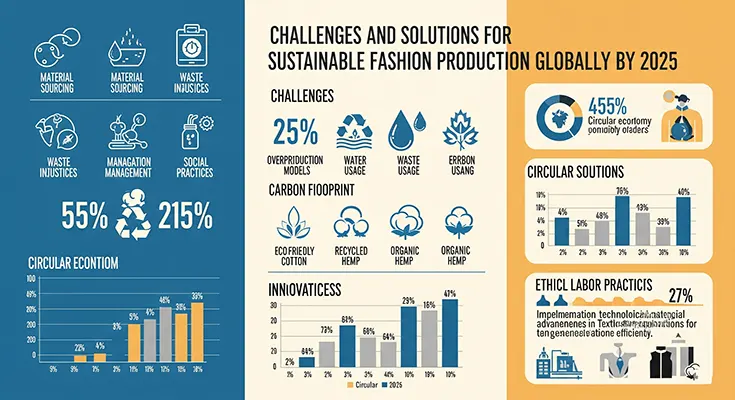
Challenges and Solutions for Sustainable Fashion Production Globally by 2025
The fashion industry is at a crossroads, facing mounting pressure to address its environmental impact and embrace sustainability. As the global demand for ethical and eco-friendly fashion continues to soar, fashion production must undergo a substantial transformation to meet these evolving consumer expectations. This article examines the challenges faced by the fashion industry in achieving sustainable production by 2025 and proposes actionable solutions to drive lasting change.
Challenge 1: Environmental Impact of Textile Production
The textile production process is a major contributor to environmental degradation, with concerns surrounding water consumption, chemical pollution, and carbon emissions. Traditional manufacturing methods have a significant carbon footprint, leading to deforestation, water pollution, and greenhouse gas emissions. This places immense strain on ecosystems, exacerbating climate change and threatening biodiversity.
Solution: Adoption of Sustainable Materials and Processes
Fashion brands must prioritize the adoption of sustainable materials such as organic cotton, hemp, recycled polyester, and innovative bio-based …
Challenges and Solutions for Sustainable Fashion Production Globally by 2025 Read More



